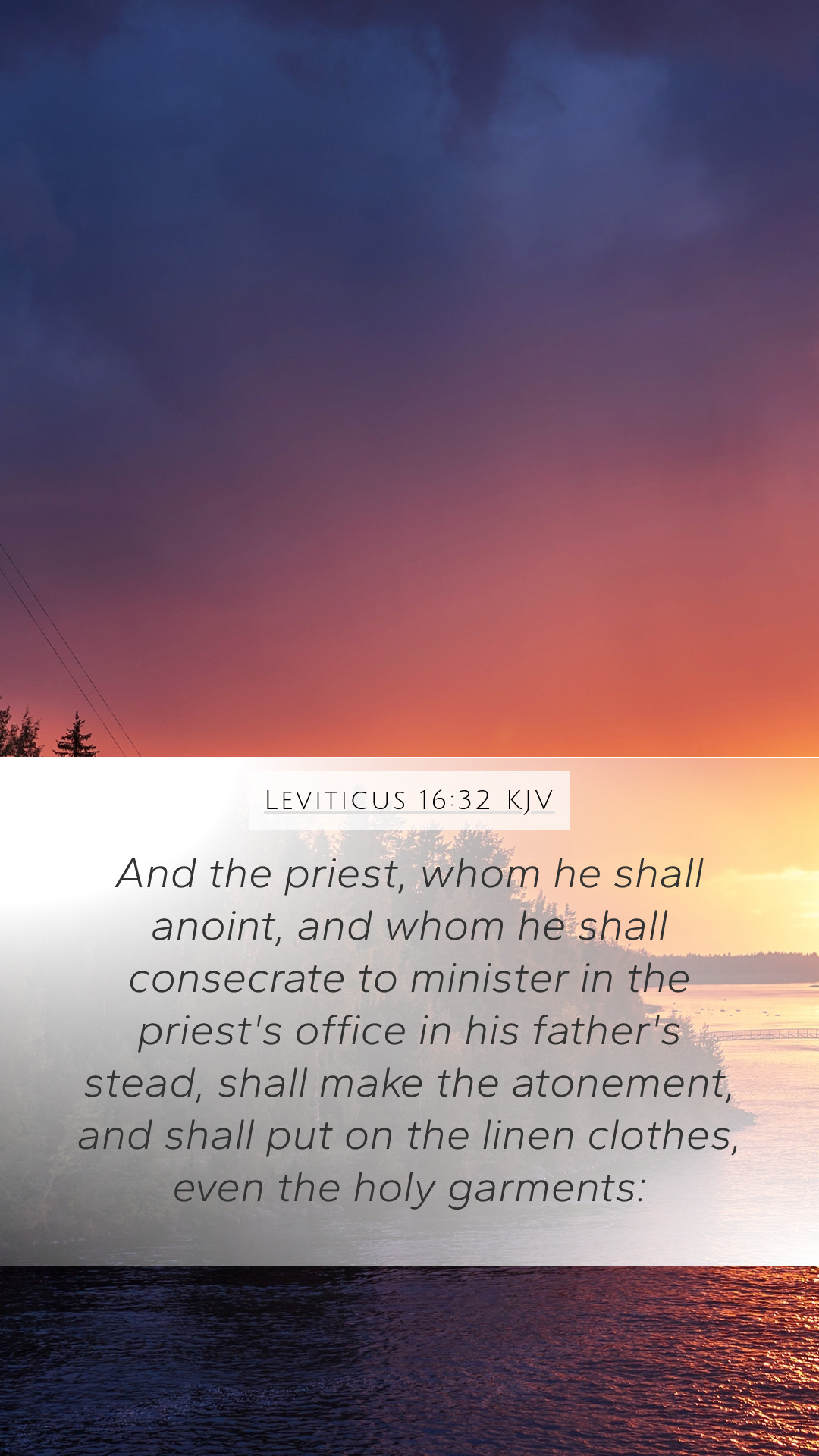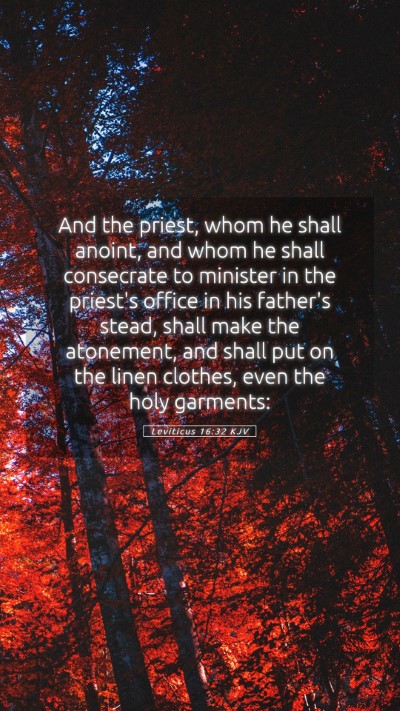Understanding Leviticus 16:32
Leviticus 16:32 is a pivotal verse in the Old Testament that discusses the role of the high priest during the Day of Atonement. In this verse, the high priest is referred to as one who is consecrated or set apart to offer sacrifices for the people of Israel, serving as a mediator between God and humanity.
Bible Verse Meaning
This verse holds significant implications concerning the sacrificial system and the holiness required for atonement:
- High Priest's Role: The high priest is depicted as a vital figure in maintaining the relationship between God and the Israelites, signifying a need for an intermediary.
- Consecration: The emphasis on the priest being consecrated highlights God's holiness and the need for purity in approaching Him, reflecting the importance of having a heart prepared for worship.
- Atonement: This passage serves to foreshadow the ultimate atonement that comes through Christ, providing a deeper understanding of biblical atonement themes.
Bible Verse Interpretations
Various public domain commentaries shed light on the deeper meanings contained in Leviticus 16:32:
- Matthew Henry: Henry emphasizes the significance of the Day of Atonement and the gravity of the high priest's role, where he notes that the rituals symbolize purification and forgiveness necessary for the people’s sins.
- Albert Barnes: Barnes articulates that this verse reinforces the importance of the high priest's responsibility to perform the sacrificial rites effectively, which underscores God's demand for holiness.
- Adam Clarke: Clarke highlights that the high priest’s consecration reflects the seriousness of spiritual leadership, and he compares this with the mediatorial role of Christ in the New Testament.
Scripture Analysis
This verse invites deeper exploration through biblical exegesis. It is essential to consider the historical context and its application in daily life:
- The Historical Context: Understanding the Levitical laws, the significance of the Day of Atonement, and ancient Israelite culture is key to grasping the full meaning of this verse.
- Symbolism: The practices described symbolize the need for atonement and foreshadow the ultimate sacrifice made through Jesus Christ.
- Application: Readers are encouraged to reflect on personal atonement, repentance, and the holiness that God calls from His people today.
Cross References
Leviticus 16:32 can be further understood in the context of other scripture passages:
- Hebrews 9:7: References to the high priest's annual sacrifices and the necessity of entering the holy places.
- Exodus 30:10: Discusses the atonement offering and its significance.
- Isaiah 53:5: Prophetic imagery of atonement through suffering.
Conclusion
In conclusion, Leviticus 16:32 serves as a crucial part of the narrative surrounding the Day of Atonement and the role of the high priest. By understanding the meanings, interpretations, and applications drawn from this verse, individuals can deepen their Bible study insights and enhance their spiritual growth.
Additional Bible Study Resources
For those engaging in Bible study groups or online Bible study, consider using Bible study tools and guides that focus on Old Testament teachings to enhance your understanding of the sacrificial system and atonement principles.


